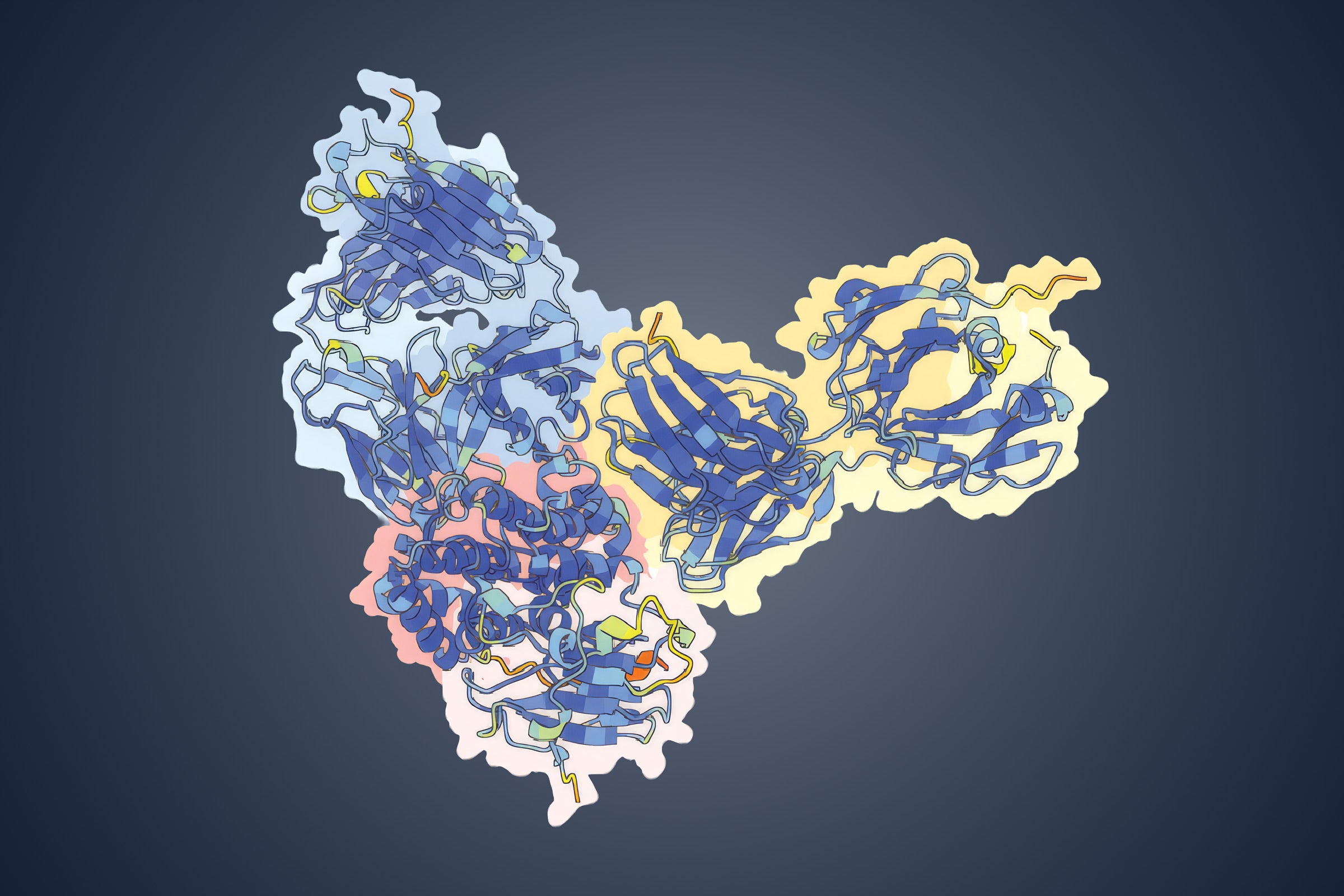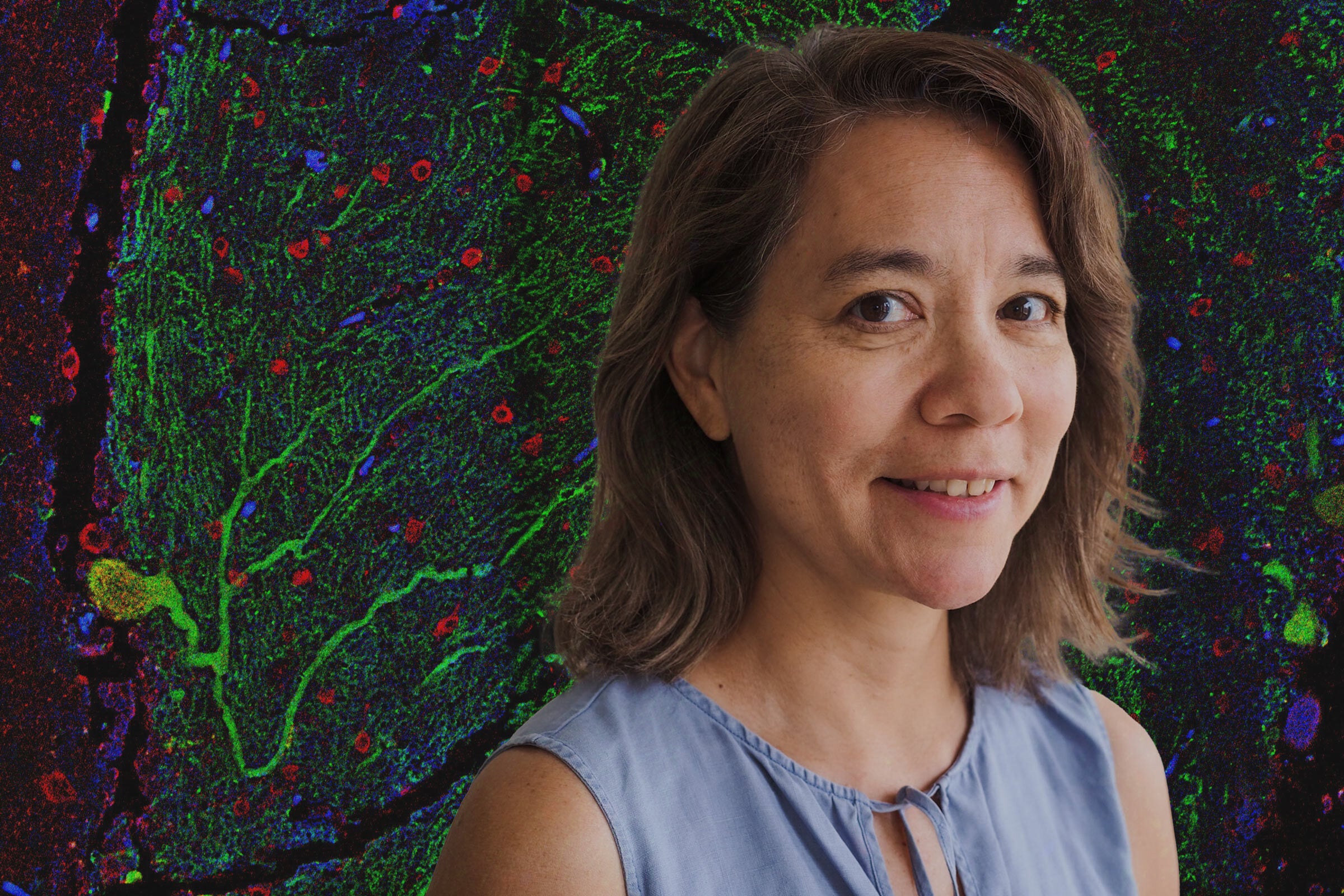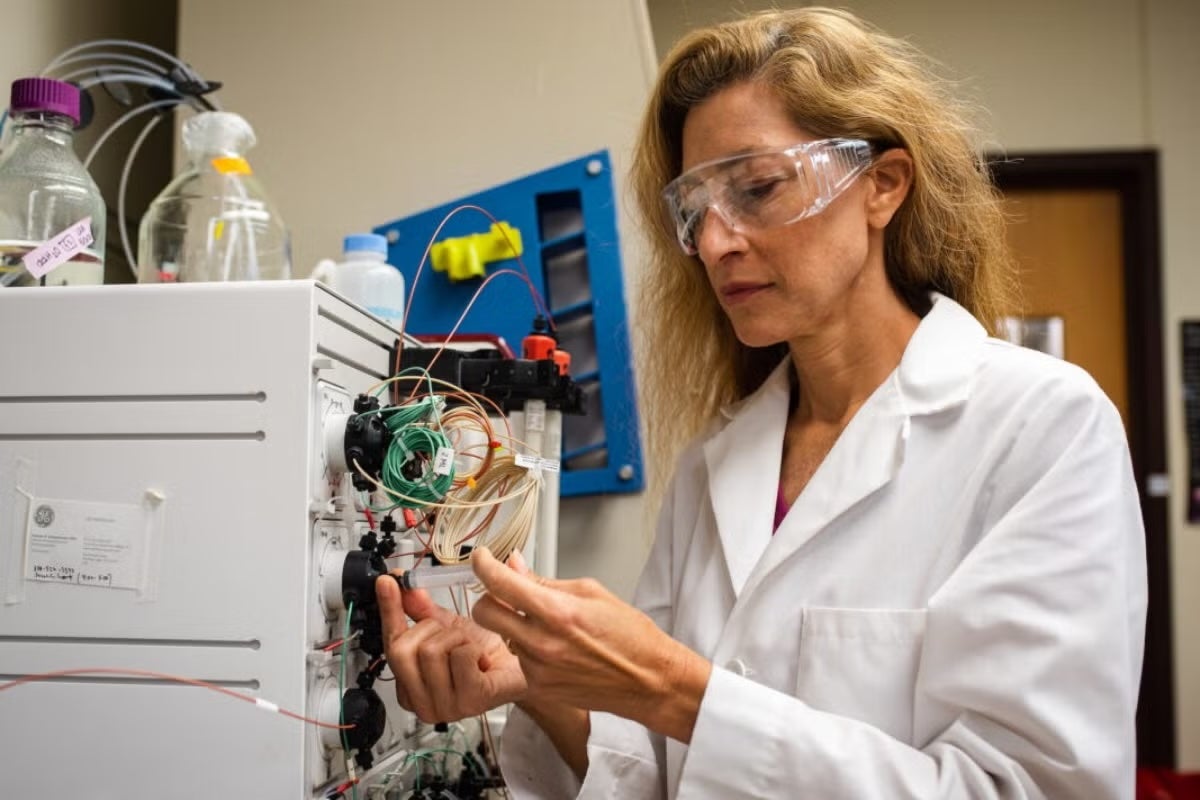Molecular Biosciences
Exploring the foundations of biology and disease in pursuit of cures, knowledge and human flourishing.


Insights into Life’s Fundamentals
With two alumni who recently won Nobel Prizes in Physiology and Medicine and faculty members who have made essential breakthroughs in the fights against COVID-19, cancer and more, our department has both a history of—and 60 current research labs—changing the world. Award-winning researchers and teachers, interdisciplinary teams and sophisticated scientific facilities make UT Austin stand out.

Biochemistry & Biosciences
Some biology specializations overlap closely with Molecular Biosciences, while others relate more to the Departments of Integrative Biology and Marine Science.
Find undergraduate information and examples of courses

I had fantastic mentors and was able to develop real life skills, such as creating my own research project and leading it from start to finish. I know I will take those skills with me to medical school and continue to use them as a physician researcher.”
Amelia Mercado
Biology
Experiences & Careers
Students of the molecular biosciences may major in biology, biochemistry or medical laboratory science and get involved in lab research, study abroad and interning while at UT. They enter many different career paths or go on to health, professional and graduate schools. Many enter careers in biotechnology, health professions, research and education. Recent grads have job titles like:
- Biomedical ethics research fellow
- Clinical research coordinator
- Quality analyst
- Newborn hearing screener
See biology Major career Paths
Discover biochemistry Major career Paths


Explore Stories
As a powerhouse in cell and developmental biology, biotherapeutics and systems and synthetic biology, this department is where scientists developed the breakthrough antigen used in the leading COVID-19 vaccines, created a plastic-eating enzyme that could help reduce landfill waste and manage the world’s longest-running evolution experiment of its kind.
Inside the lab that invented the COVID-19 vaccines
Making a plastic-eating enzyme that could eliminate billions of tons of landfill waste
Study & Learn
Undergraduates can receive bachelor’s degrees in biochemistry, in biology or in medical laboratory science. Students with an interest in forensic science or pre-health may pursue a certificate in either area. Graduate studies are available in the Interdisciplinary Life Sciences: microbiology, cell and molecular biology and biochemistry.
Biochemistry: Option 1
Biochemistry: Option 3
Honors
Biology
Biology
Honors
Biology: Option 1
Ecology, Evolution & Behavior
Biology: Option 2
Human Biology
Biology: Option 3
Biology: Option 4
Microbiology and Infectious Diseases
Biology: Option 5
Cell & Molecular Biology
Biology: Option 7
Plant Biology
Biology: Option 8 Composite
Teaching, Senior grades/Middle grades/All certifications
Biology: Option 8 Life Science
Teaching, Senior grades/Middle grades/All certifications
Biology: Option 9
Biology Honors
Biology: Option 10
Computational Biology
Biology: Option 12
Genetics and Genomics
Evidence and Inquiry
Evidence and Inquiry
Evidence and Inquiry
Forensic Science
Marine Science
Medical Laboratory Science
Pre-Health Professions
Non-Science Major Track. Students outside of the College of Natural Sciences only.
Pre-Health Professions
Non-Science Major Track. Students outside of the College of Natural Sciences only.
Pre-Health Professions
Non-Science Major Track. Students outside of the College of Natural Sciences only.
Pre-Health Professions
Science Major Track
Pre-Health Professions
Science Major Track
Pre-Health Professions
Science Major Track
Statistics and Data Science Minor
Statistics and Data Science Minor
Statistics and Data Science Minor
UTeach-Natural Sciences Accelerated Track
UTeach Natural Sciences Secondary Teaching Option
Molecular Biosciences News

AI Tips Off Scientists to New Drug Target to Fight Monkeypox Virus
The breakthrough could be used in a new vaccine or antibody therapy to fight mpox, the disease caused by the monkeypox virus.



